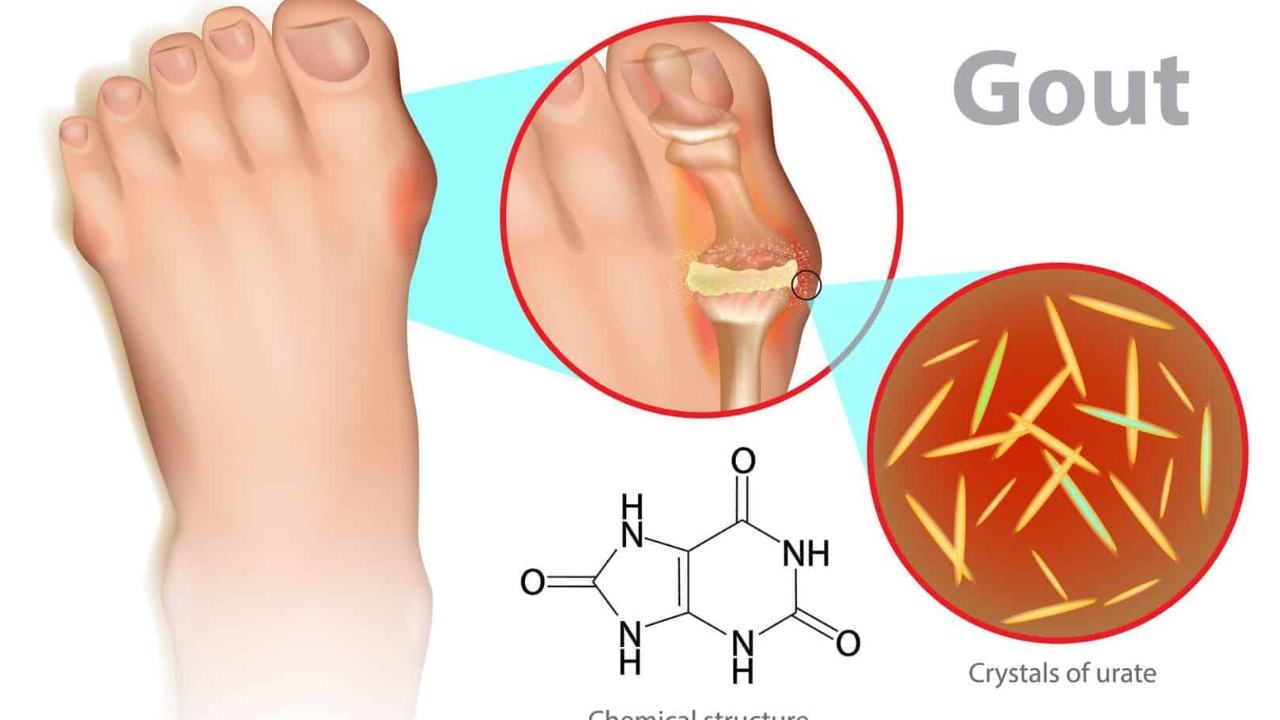Uric acid is a natural waste product formed from the breakdown of purines—substances found in certain foods and drinks. While uric acid typically dissolves in the blood and exits the body through urine, elevated levels can lead to health complications like gout, kidney stones, and even kidney damage over time. Managing uric acid levels is crucial for those prone to these conditions, and what you drink can significantly influence these levels.
This article explores the best and worst beverages for managing uric acid levels, helping you make informed choices that support your health.
Understanding Uric Acid and Its Impact
Before diving into beverages, it’s important to understand how uric acid works in the body. Purines are found in various foods and drinks, and when your body breaks them down, uric acid is created. Normally, it passes harmlessly through the kidneys and exits through urine. However, excessive production or poor elimination can cause it to build up in the bloodstream, leading to hyperuricemia.
Hyperuricemia doesn’t always cause symptoms, but it increases the risk of gout, a painful form of arthritis. Therefore, dietary and lifestyle changes, including beverage choices, can make a big difference in managing uric acid levels.
Best Beverages for Lowering Uric Acid
1. Water
Water is by far the most effective and accessible beverage for managing uric acid. Staying well-hydrated helps your kidneys flush uric acid from your system more efficiently. Aim to drink at least 8–10 glasses of water daily. If you exercise or live in a hot climate, you may need even more.
2. Lemon Water
Lemon juice, despite its acidic taste, has an alkalizing effect on the body. It may help dissolve uric acid and prevent crystal formation. Lemons also contain vitamin C, which some studies suggest may lower uric acid levels. Squeeze half a lemon into warm water and drink it on an empty stomach for best results.
3. Green Tea
Green tea is rich in antioxidants called catechins. These compounds have anti-inflammatory properties and may help reduce uric acid levels over time. A study in Nutrition Research suggested green tea might support uric acid metabolism, making it a smart choice for gout sufferers.
4. Low-fat Milk
Low-fat dairy products contain proteins that help excrete uric acid. Specifically, low-fat milk may lower uric acid levels and reduce the risk of gout attacks. It also provides essential nutrients like calcium and vitamin D.
Check Semen Analysis Test Results
5. Coffee (in moderation)
Surprisingly, moderate coffee consumption (especially regular caffeinated coffee) may be associated with lower uric acid levels. The antioxidants in coffee, including chlorogenic acid, may improve insulin sensitivity, which is linked to uric acid regulation. However, avoid sugar-laden or high-fat coffee drinks.
Worst Beverages for Uric Acid
1. Sugary Drinks (especially with fructose)
Sugary sodas and beverages high in high-fructose corn syrup are the worst offenders. Fructose increases the breakdown of purines, which raises uric acid production. Regular consumption of soft drinks is a well-known risk factor for gout and hyperuricemia. Even fruit juices with added sugars can be problematic.
2. Alcohol (especially beer)
Alcohol interferes with the removal of uric acid from the body. Among alcoholic beverages, beer is the worst due to its high purine content. It also increases lactic acid, which further inhibits uric acid excretion. Spirits and wine, in moderation, may have less of an effect but can still elevate uric acid levels when consumed excessively.
3. Energy Drinks
Most energy drinks are packed with caffeine, sugar, and other additives that can disrupt the body’s natural metabolic processes. The sugar content, in particular, can contribute to elevated uric acid levels in a similar way to sugary sodas.
4. Artificially Sweetened Beverages
While diet sodas might not contain sugar, they often contain artificial sweeteners and chemicals that have unclear effects on uric acid levels. Some studies have shown a weak association between artificially sweetened drinks and metabolic disorders that could indirectly impact uric acid metabolism.
5. Fruit Juices (with high sugar content)
Even natural fruit juices like orange juice can be high in natural sugars, particularly fructose. Drinking large quantities of fruit juice can cause a similar uric acid spike as soda. Whole fruits are generally safer because they contain fiber that slows sugar absorption.
Tips for Choosing the Right Beverages
- Read Labels: Watch for hidden sugars in packaged drinks.
- Dilute Juices: If you enjoy fruit juice, dilute it with water to reduce sugar intake.
- Limit Alcohol: If you do drink, opt for wine over beer, and do so in moderation.
- Go Natural: Stick to herbal teas, lemon-infused water, and unsweetened beverages.
- Monitor Symptoms: If you suffer from gout or kidney issues, keep a log of your beverages and how they affect your symptoms.
The Role of a Uric Acid Test
If you suspect high uric acid levels or experience symptoms like joint pain, swelling, or recurrent kidney stones, a uric acid test can provide clarity. This simple blood or urine test measures the amount of uric acid in your body and helps diagnose conditions like gout or kidney dysfunction. Regular testing is especially important if you have a family history of gout, consume high-purine diets, or are undergoing treatment to lower uric acid levels. Early detection through testing can guide timely lifestyle and dietary changes, including smarter beverage choices, to prevent complications.
Conclusion
What you drink matters just as much as what you eat when managing uric acid levels. Beverages high in sugar and alcohol can worsen uric acid buildup and increase the risk of gout attacks, while water, lemon water, green tea, and low-fat milk can help reduce and flush out uric acid. Making informed, health-conscious beverage choices can be a powerful way to support your body’s natural processes and avoid painful conditions associated with high uric acid. If you’re unsure about your uric acid levels, consult a healthcare provider for proper testing and personalized guidance—or [Retrieve Lab Report Here] to review your latest results and take action accordingly.






